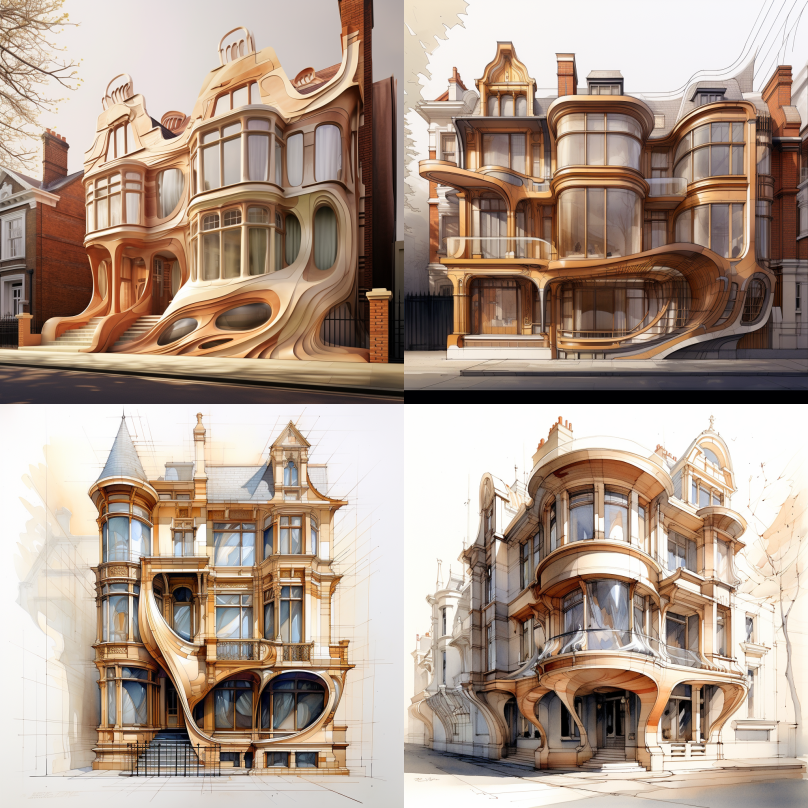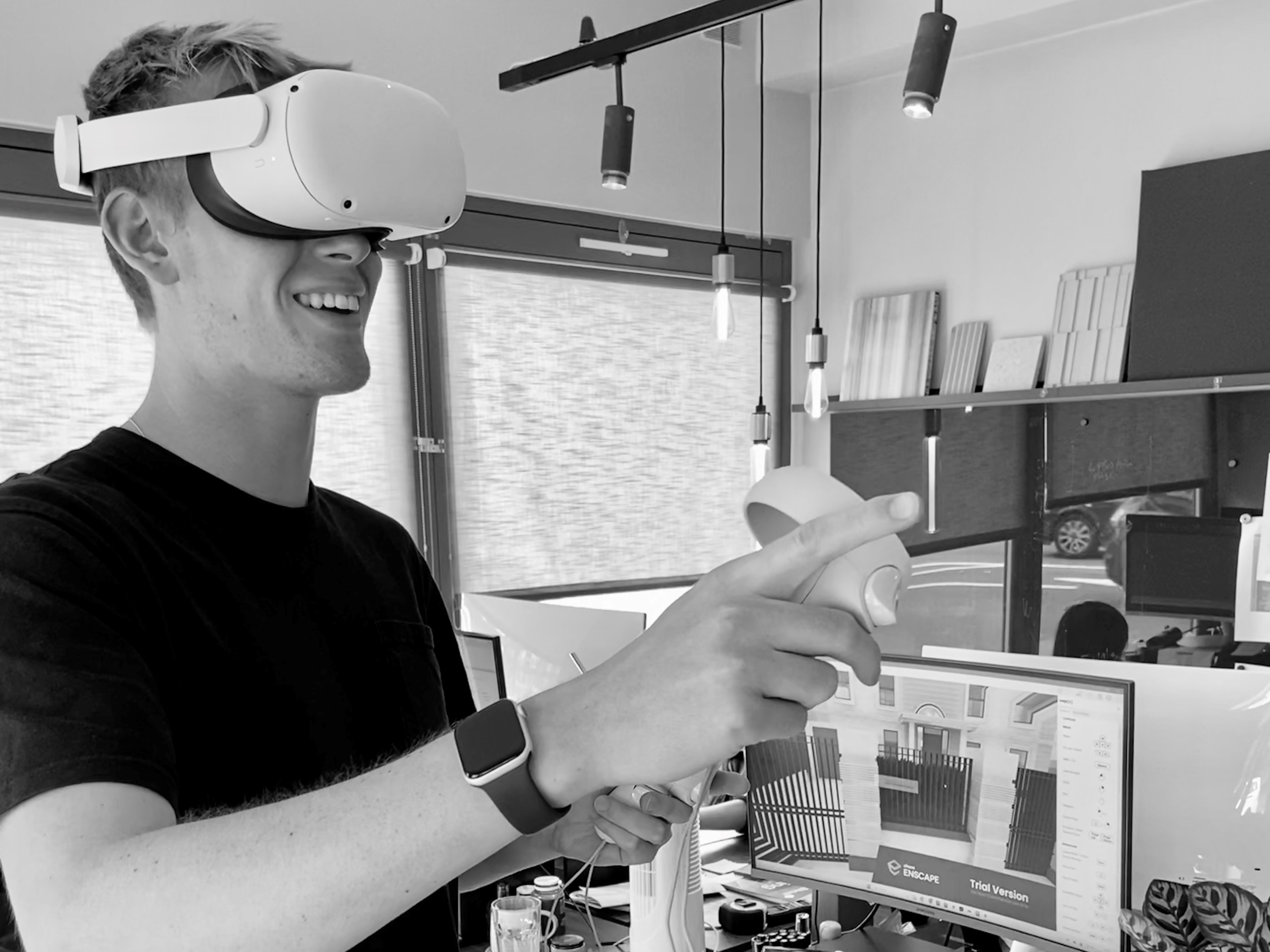Architecture + AI
How AI is elevating architectural experiences for the architect & the client
Written by: Jack Winstanley, L+Architects
‘How did the AI architect respond to a client’s compliment on such a great design? – “Thank you, but I can’t take all the credit. My human programmer deserves some recognition too!”’
The above joke was produced by the AI chatbot – ChatGPT – when prompted to write a joke about architects and AI. An amusing and yet slightly concerning joke that I think sums up how many people feel about AI’s sudden advancement in recent years. It is a scary prospect. Films about AI overpowering humanity such as Terminator and The Matrix do not feel as far from reality as they once were over 20 years ago. Nonetheless, at this moment in time (and hopefully for many years to come) humans are in control and have access to a new, very powerful tool that can propel modern life and all its industries into the next era. So, in relation to the architecture industry, it has already seen AI-based technologies positively transform the industry. In the following section of this blog, we will explore the different ways in which AI is being employed in architecture and how it is enhancing the overall architectural experience for both architects and clients.

Credit: Image AI generated by Pablo Lambrechts using MidJourney.
Generative Design: With AI generative design tools, architects can explore a wide range of design possibilities. AI can produce optimised design solutions based on specified criteria and constraints, such as the client’s brief, site, cost, energy consumption, and space planning. Also, AI text-to-image generators can spark new concept ideas and reimagine the project in unexpected ways.

Credit: @lplusarchitects
Virtual & Augmented Reality: AI technologies can create realistic virtual environments and simulations, enabling architects and clients to experience and understand architectural designs more effectively. Clients can explore and interact with their projects before construction begins, providing a more immersive understanding of the design.
Building Analysis: AI can analyse a building model and produce comparative insights based on the data of different design options. It can evaluate the environmental impacts, simulate energy savings, and estimate costs to help the client in making more informed decisions.
Project Planning: With historical building data, AI can aid in the planning of a project. It can predict potential delays, cost overruns, estimate resource requirements, and create whole project timelines to help architects and clients better plan and manage their projects.

At L+Architects, we embrace innovation and are experimenting with AI text-to-image generators, chatbots, and virtual reality. We are intrigued to see how AI can further positively change our industry. According to the AJ100 Survey for 2023, 44% of the top 100 architecture practices in the UK are using AI in some way. I think we can expect this percentage to reach 100% relatively soon as AI becomes more accessible, powerful, and helpful for architects.
Contact us to discuss your bespoke architecture project on office@lplusarchitects.com
Contacting L+Architects
Thanks for your interest. Please fill out the form to get in touch, we aim to get back in touch with you asap.